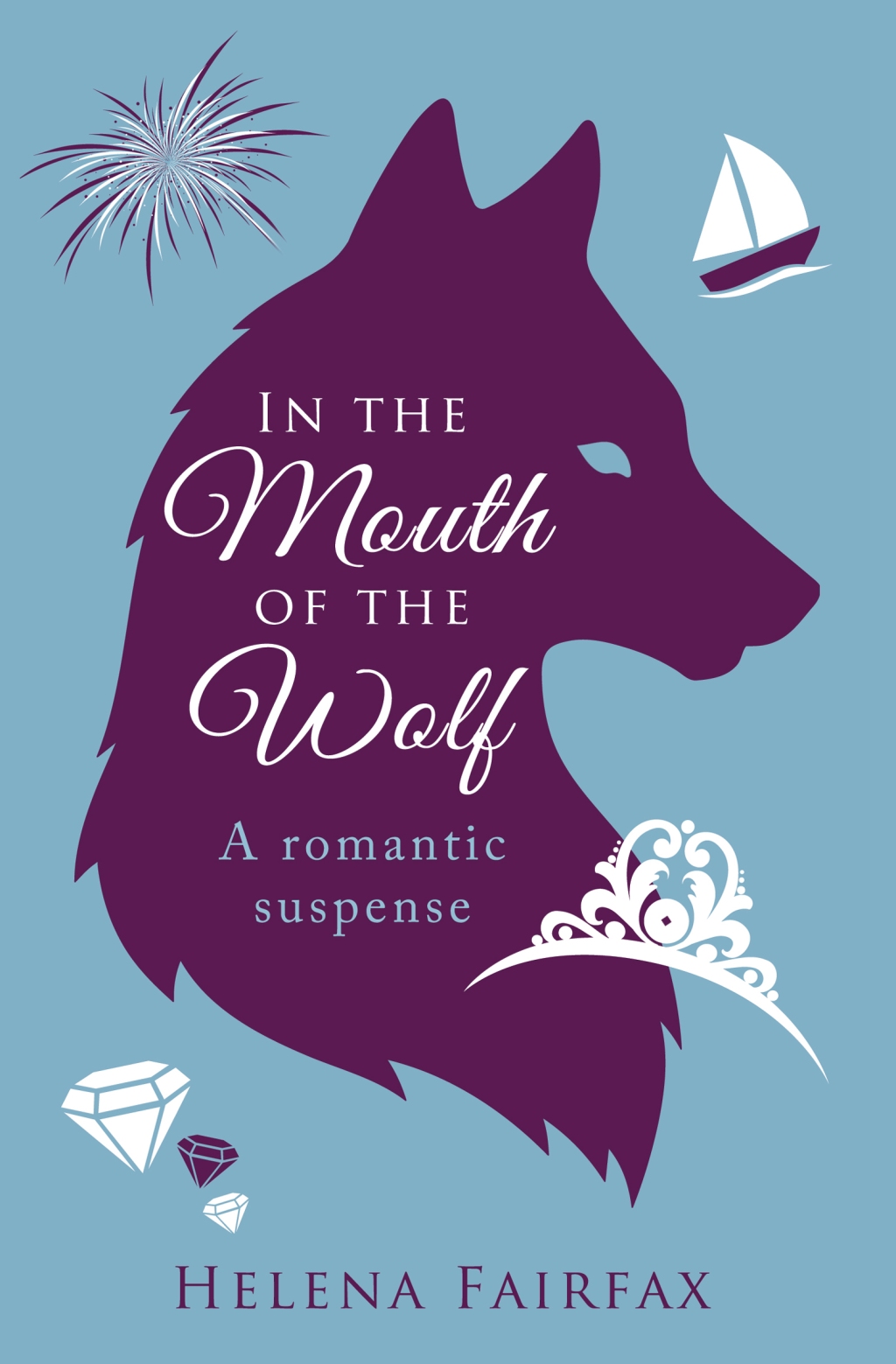It’s time for our monthly authors’ Round Robin, and today we have another thought-provoking topic, chosen by author Rhobin Courtright…

What unusual situations have occurred in the writing process of any of your novels?
By ‘unusual situations’, Rhobin means times when everything you’d carefully planned changed, or your story veered off track in a way that surprised you.
I have only ever had one novel that I carefully planned out from start to finish. I knew all the characters, their motivations, the story structure, and what would happen in every scene, from first to final act. I wrote 20,000 words and stopped. I felt like I’d already done all the interesting work. Now I could see chapter after chapter looming ahead of me, my characters acting in exactly the way I’d predicted, with nothing changing, and no surprises. That novel is still on my laptop, waiting to be written, because I was bored to tears with it.

Planning vs pantsting
My most successful writing process always comes from half-planning, half pantsting. When I start writing a new novel or story, I generally work better if I have just an outline. Because I write romance, my stories are character-driven, and the thing driving a romance is conflict. So my first job is to decide what it is that is keeping the hero and heroine apart. Romantic conflict means two characters having different goals, the sort of intense emotional conflict that means they could never be with that other person, no matter how much they love them.
Romantic conflict
If the hero and heroine are meant for each other, why aren’t they together on page two? There has to be some fundamental conflict that prevents them. The stronger this source of conflict is, the better. But if the conflict is too strong, the hero and heroine will meet on page one and what’s to stop them thereafter just avoiding each other? So the second thing I work on is devising a situation in which these two characters will be thrown together, and they will be forced to stay together, no matter how much they don’t want it.
I know what will happen at the end of my novels. I’m writing romance, after all. So once I have the characters, the romantic conflict and the setting, now I just need to dream up situations in which that conflict is tested to its limits.

And so I start to write. Putting finger to keyboard with only a vague idea of what’s going to happen along the way is quite scary, but I’ve learned a few tricks that help. (One of these is, when in doubt, up the stakes.) Although I don’t plan too much, my thinking as I’m writing is generally quite logical, and because I’ve read so many books, I have a reasonable feel for the structure of a story – where the highs and lows should be, the point of crisis, the final intense scene.
So I know the main characters will get together, but writing in this way means it isn’t always  clear to me just how they will get their happy ending when I start. I was interested to read in this biography of Georgette Heyer, by Jane Aiken Hodge, that Heyer wrote her novels in a similar way. She would write ironic letters to her publisher saying things like, ‘I expect you want to know how my hero ends up in the same town as my heroine. Let’s not worry about that one now. All will become clear as we go along.’
clear to me just how they will get their happy ending when I start. I was interested to read in this biography of Georgette Heyer, by Jane Aiken Hodge, that Heyer wrote her novels in a similar way. She would write ironic letters to her publisher saying things like, ‘I expect you want to know how my hero ends up in the same town as my heroine. Let’s not worry about that one now. All will become clear as we go along.’
I wouldn’t say the events of my novels surprise me, because I do have a rough plan in mind, but the events remain fresh, because I’m sort of thinking them up as I go along, and they’re not as stale as if I’d planned everything rigidly.
Here’s an example. In my recent story ‘Make My Wish Come True’, which I wrote for Christmas at Miss Moonshine’s Emporium (an anthology by nine of us members of the UK’s Romantic Novelists’ Association) I had a rough idea of what I wanted to happen when I set out to write. I wanted to use characters from my story in the previous anthology, Miss Moonshine’s Emporium of Happy Endings. Because I hadn’t planned a sequel when I wrote my first story, my choice of character to use again was limited. I’d featured two children, Alfie and Mary, and I decided to pick these two, and have a blossoming romance between them. Of course now they’d have to be more grown up. My first story was set in 1908. I set the new story in 1912, a few years on, when the two are teenagers.
 I had a scene in mind to open with – Alfie and Mary meet outside Miss Moonshine’s Emporium. They have left school now, so what situation could I devise that would throw them together for the course of the story? Of course, it’s Christmas, and so they are both taking part in the nativity in their local chapel. Alfie’s dad owns a sheep farm, and Alfie is a shepherd. Perfect.
I had a scene in mind to open with – Alfie and Mary meet outside Miss Moonshine’s Emporium. They have left school now, so what situation could I devise that would throw them together for the course of the story? Of course, it’s Christmas, and so they are both taking part in the nativity in their local chapel. Alfie’s dad owns a sheep farm, and Alfie is a shepherd. Perfect.
I began to write, and as I did so, I realised everything was going far too easily for them. As Alfie entered the chapel for the first rehearsal, I knew I had to up the stakes. And so another character appeared. Jim Emery, the old school bully, sits down next to Mary in chapel. Jim completely changed the story. I had no idea at this stage how things would be resolved, but I knew I had to have Alfie’s dad make him a shepherd’s crook, because a shepherd’s crook is always a feature in nativities. The crook gave me another idea… And so I wrote on, until the final uplifting scene, which I always knew was going to be the actual nativity, with Alfie and Mary together.
Although I’d pictured the ending, because I wrote without a full plan, the story began to take on characters and situations I hadn’t imagined when I first put finger to keyboard. But really, the end result wasn’t unusual, because I was planning and thinking ‘as I was going along’.
There has been only one time that a character has ‘surprised’ me. This was Léon, the hero of my romantic suspense, In the Mouth of the Wolf. Léon is now my favourite of my heroes, and I wonder if it’s because he turned into someone I hadn’t expected. My novel grew out of a short story in which Léon is bodyguard to Lizzie, after she takes on the role of a missing Mediterranean princess. At the end of the story, Léon and Lizzie end up together. I wanted to know what would happen next, and so I developed the story into a novel, and had Léon return with Lizzie to her home town of Edinburgh. At that stage, Léon wasn’t a fleshed out character. I needed a past for him. And then a strange thing happened, and I realised something about him that changed everything, and changed the whole dynamic of his relationship with Lizzie. This secret past was a revelation to me that I hadn’t planned, but when I read back over my opening, it was as though it was there all along. When ideas happen like that, it’s a wonderful feeling, and it’s as though your characters really have taken on a life of their own.
romantic suspense, In the Mouth of the Wolf. Léon is now my favourite of my heroes, and I wonder if it’s because he turned into someone I hadn’t expected. My novel grew out of a short story in which Léon is bodyguard to Lizzie, after she takes on the role of a missing Mediterranean princess. At the end of the story, Léon and Lizzie end up together. I wanted to know what would happen next, and so I developed the story into a novel, and had Léon return with Lizzie to her home town of Edinburgh. At that stage, Léon wasn’t a fleshed out character. I needed a past for him. And then a strange thing happened, and I realised something about him that changed everything, and changed the whole dynamic of his relationship with Lizzie. This secret past was a revelation to me that I hadn’t planned, but when I read back over my opening, it was as though it was there all along. When ideas happen like that, it’s a wonderful feeling, and it’s as though your characters really have taken on a life of their own.
*
Sometimes – quite often! – I’m also surprised by books as a reader. I’d be interested in any books you’ve read where a character has completely surprised you in the same way. If you have any comments at all, I’d love to hear from you!
And if you’d like to hear the other authors’ take on this topic, please click on the links below…
A.J. Maguire http://ajmaguire.wordpress.com/
Connie Vines http://mizging.blogspot.com/
Skye Taylor http://www.skye-writer.com/blogging_by_the_sea
Judith Copek http://lynx-sis.blogspot.com/
Margaret Fieland http://margaretfieland.wordpress.com
Dr. Bob Rich https://wp.me/p3Xihq-1JS
Diane Bator http://dbator.blogspot.ca/
Rhobin L Courtright http://www.rhobincourtright.com
Beverley Bateman https://beverleybateman.blogspot.com/2019/10/was-writing-your-story-hijacked.html


Leave a Reply